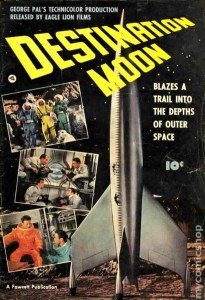The Wandering Earth is about a solar system wide catastrophe. The sun’s core has ‘degenerated,’ and the it will soon expand and consume at the very least the inner planets if not the entire solar system. (Yes, this will occur in billions of years, but the film is not that much of a far future device and it would be best to forget what science you know when watching the feature.) To save humanity mankind unites under the United Earth Government and launches the wandering Earth project, an ambitious undertaking to move the  entire planet to another star. After stopping the planet’s rotation affixing 10,000 ‘planetary engines,’ and constructing a massive space station/ship that acts as a navigation and path finding aid, the Earth is launched on a trajectory for a gravity assist from Jupiter and from there Alpha Centauri. When Jupiter emits ‘gravitational spikes’ the orbits are changed and many of the massive planetary engines are disabled leaving Earth on a path towards a collision with the Jupiter. Amid the frantic efforts to restart enough engines to avoid the Earth’s destruction the story follows the interpersonal crisis of one family as they come to grip with the nature of sacrifice.
entire planet to another star. After stopping the planet’s rotation affixing 10,000 ‘planetary engines,’ and constructing a massive space station/ship that acts as a navigation and path finding aid, the Earth is launched on a trajectory for a gravity assist from Jupiter and from there Alpha Centauri. When Jupiter emits ‘gravitational spikes’ the orbits are changed and many of the massive planetary engines are disabled leaving Earth on a path towards a collision with the Jupiter. Amid the frantic efforts to restart enough engines to avoid the Earth’s destruction the story follows the interpersonal crisis of one family as they come to grip with the nature of sacrifice.
Reminiscent of big budget disaster films from the 1970s, a genre I admit to loving, with state of the art digital effects The Wandering Earth is a treat best enjoyed in a theater where massive speaker and an enormous screen can submerge the viewer into the film’s bonkers reality. Sadly, as a foreign language film that doesn’t fit neatly into an Art House aesthetic this movie has a very short life in American theater exhibition and the streaming giant Netflix has already purchased the rights.
One aspect I heard mentioned before I watched the film was the idea that the movie pushed a Chinese propaganda line. This I did not see at all. Oh, there’s no doubt that the viewpoint is centered in Chinese characters and it is Chinese scientists and heroes that perform the film massive saves, but this is no more ‘propaganda’ than the fact Hammer films consistently have British heroes or that American movies also have American’s saving the day. In the end these films are made for their own homes and reflect everyone’s desire to see themselves as heroes.
While the hard science fiction nerd in me screamed from the nearly uncountable errors in the movie, the kid who loves action, spectacle, and grand adventure was entirely thrilled. Turn off all scientific understand and enjoy The Wandering Earth.



